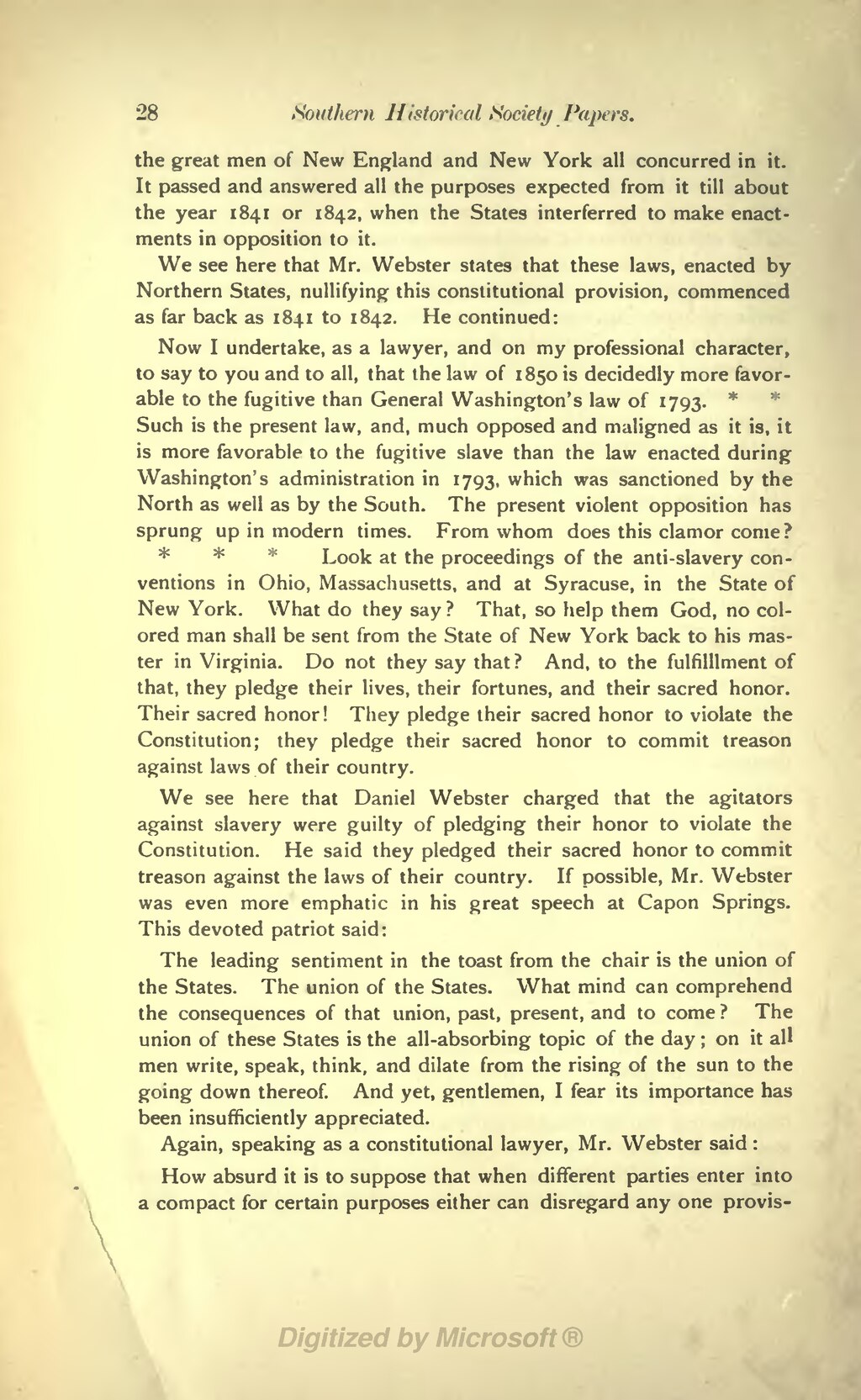28 SnUtln-Dt Hlxtor;,;ll Snrnl,/ I^lfn /'-.
the great men of New England and New York all concurred in it. It passed and answered all the purposes expected from it till about the year 1841 or 1842, when the States interferred to make enact- ments in opposition to it.
We see here that Mr. Webster states that these laws, enacted by Northern States, nullifying this constitutional provision, commenced as far back as 1841 to 1842. He continued:
Now I undertake, as a lawyer, and on my professional character, to say to you and to all, that the law of 1850 is decidedly more favor- able to the fugitive than General Washington's law of 1793. * Such is the present law, and, much opposed and maligned as it is, it is more favorable to the fugitive slave than the law enacted during Washington's administration in 1793, which was sanctioned by the North as well as by the South. The present violent opposition has sprung up in modern times. From whom does this clamor come? Look at the proceedings of the anti-slavery con- ventions in Ohio, Massachusetts, and at Syracuse, in the State of New York. What do they say? That, so help them God, no col- ored man shall be sent from the State of New York back to his mas- ter in Virginia. Do not they say that? And, to the fulfilllment of that, they pledge their lives, their fortunes, and their sacred honor. Their sacred honor! They pledge their sacred honor to violate the Constitution; they pledge their sacred honor to commit treason against laws of their country.
We see here that Daniel Webster charged that the agitators against slavery were guilty of pledging their honor to violate the Constitution. He said they pledged their sacred honor to commit treason against the laws of their country. If possible, Mr. Webster was even more emphatic in his great speech at Capon Springs. This devoted patriot said:
The leading sentiment in the toast from the chair is the union of the States. The union of the States. What mind can comprehend the consequences of that union, past, present, and to come ? The union of these States is the all-absorbing topic of the day ; on it all men write, speak, think, and dilate from the rising of the sun to the going down thereof. And yet, gentlemen, I fear its importance has been insufficiently appreciated.
Again, speaking as a constitutional lawyer, Mr. Webster said :
How absurd it is to suppose that when different parties enter into a compact for certain purposes either can disregard any one provis-
